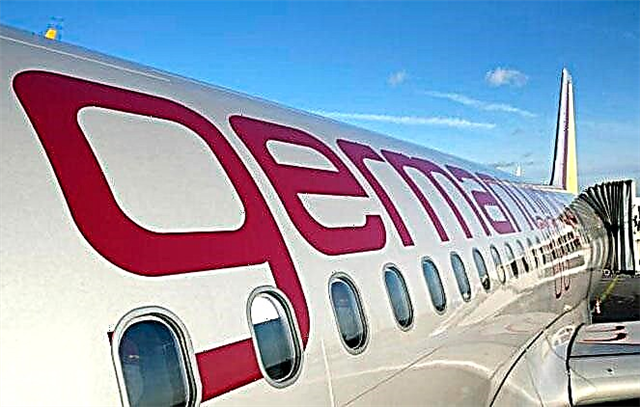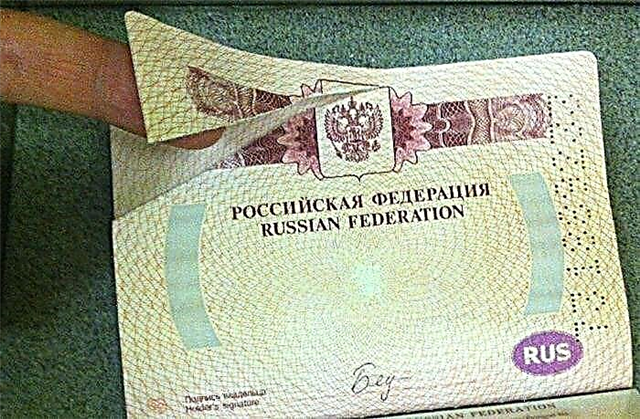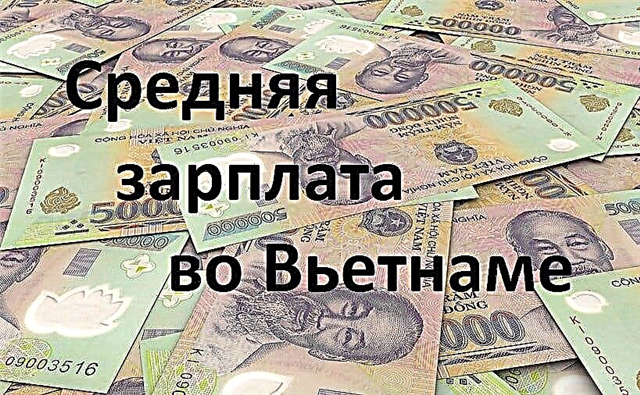Tourists heading to the Czech Republic are hardly interested in anything else besides sightseeing and excellent local cuisine. It's another matter if you are not planning a short-term visit, but a full-fledged move for permanent residence or organizing your own business - here you will not get by with modest knowledge about the features of tax free. A future investor or businessman will need to get at least general information about what taxes in the Czech Republic are in 2021.
Main characteristics of the tax system in the Czech Republic
Having become a full member of the European Union, the Czech Republic was forced to follow the path of reforming and unifying its fiscal system. This has led to the fact that today the taxes collected in the country are divided into two main categories: direct and indirect.
Most of the country's budget revenues come from VAT and income tax.
A standardized tax system allows for effective intergovernmental agreements on the avoidance of double taxation with a large number of states. And the status of a tax resident of the Czech Republic with relatively low rates of fiscal obligations can bring significant savings to the payer.
A high level of social standards in the country is ensured, among other things, due to the peculiarities of taxation of wages. In order to avoid concealing real incomes, employees are obliged to independently pay additional health insurance contributions up to the established amount, if their income is less than the minimum.
List of taxes for individuals in the Czech Republic
If a citizen of the Czech Republic or a foreigner receives income on its territory, he should be prepared for the fact that he will have to deduct a part of his profit to the country's budget either independently or through an employer. At the same time, the list of tax payments for individuals is not as large as in other countries:
| Name | Bid | Note | |
|---|---|---|---|
| Income tax | Daň z příjmu fyzických osob | 0.15 | The scale is not progressive, but there are nuances in the minimum income and super-profits of entrepreneurs |
| Payroll taxes: | Zdanění mzdy | Both employees and employers pay | |
| Social insurance | Sociální pojištění u zaměstnanců | 6.5% of salary | The total salary rate is 31.5%, of which 25% is paid at the expense of the employer |
| Health insurance | Pojistného zdravotního pojištění | 4.5% of salary | The general rate is 13.5%, of which 9.5% is paid by the employer. |
| Donation and inheritance | Daň dědická, darovací | 0.5% to 40% | Depends on the degree of kinship |
| On television | Televizní a rozhlasové poplatky | For each radio and television device | Average 135 CZK |
Entrepreneurs must also pay income tax at a rate of 15%, but if their annual income exceeds 48 times the minimum wage, they will have to pay an additional 7% of the excess amount.
Taxation of salaries of employees in the Czech Republic
Employed professionals can fully rely on their employer in tax matters. Timely and complete transfer of all taxes and insurance fees from salaries of employees is the responsibility of the employer as a tax agent. And although it is not entirely correct to classify these payments as "taxes on business", the responsibility for violations in this area lies with the management of the enterprise.
In the Czech Republic, the size of the minimum wage for hired personnel is set annually (from 2021 - 12,200 kroons). Based on this, the insurance premium for health insurance is calculated.
If the average monthly income of the employee for some reason is less than this indicator, then the employee must pay the missing amount for medical insurance from his own funds: in 2021, the total payment must be at least 1647 kroons.
In this case, the employer will in any case pay at the rate of 9% of the employee's actual salary. Thus, the state is trying to bring “gray” salaries out of the shadows.
Other taxes and fees are charged on the actual amount of income.
An intuitive calculator for calculating the "net" salary is on the site.
The main types of taxes for legal entities
The difference between the taxation of individual entrepreneurs and organizations is that the former pay income tax on their net annual earnings (15% + an additional 7%), and the latter pay income tax at a higher rate (19%).
Otherwise, the list of fiscal payments for legal entities is the same and depends on the type of activity of the company:
| Name | Bid | Note | |
|---|---|---|---|
| VAT | Daň z přidané hodnoty (DPH) | 21% (reduced - 15% and 10%) | |
| Excise (consumption tax) | Spotřební daň | A fixed rate is approved for each type and unit of goods (taking into account EU requirements) | Products made from alcohol, wine, beer, tobacco, fuels and lubricants are levied |
| Road toll | Daň silniční | Depends on the volume of the engine for a passenger car and the number of axles - for a cargo | Entrepreneurs pay for commercial vehicles or the one used for business |
| Corporate income tax | Daň z příjmu právnických osob | 0.19 | For non-residents, this percentage can rise to 35% |
Excise payments
Consumption taxes are controlled by the Czech Customs Office. In addition to beer, alcohol-containing products, wine, fuels and lubricants, cigarettes and tobacco products are considered excisable. At the same time, the amount of excise taxes should be at the level established in the territory of the European Union.
For example, since 2021, cigarettes in the Czech Republic have risen in price by 3-4 kroons precisely because EU regulations provide for a minimum excise tax of 90 euros per 1000 cigarettes. Thanks to this, the state treasury in just a year was replenished only from the sale of tobacco by 3.3 billion kroons.
Brewing is a visiting card of the Czech Republic, and the amount of proceeds from the payment of excise taxes on beer is very significant. 90% of the entire production of the hop drink is concentrated in the hands of large companies (Plzeňský Prazdroj, Staropramen, Heineken ČR, Budějovicky Budvar and others), which produce much more than 2 million liters of products per year.
They are the ones who pay the full excise tax rate of 32 kroons per 1 degree Plato per hectoliter. Medium and small breweries enjoy discounts, and home brewers (no more than 200 liters per year) do not pay tax at all, provided that they do not sell their beer to anyone.
Property taxes and resale taxes
Owning real estate in the Czech Republic does not bring large expenses for its owner, starting from the moment of sale, when the seller has to pay only 4% tax (Daň z převodu nemovitostí) to the budget of the value specified in the purchase contract.
It should be borne in mind that if the actual price of the premises differs from the expert's estimate, then a large amount is taxed.
The following are exempted from this tax:
- the former owner, if he bought this object more than 5 years ago;
- a seller who has been registered at the specified address for more than 2 years;
- the owner, if he sells the only housing and uses the proceeds to improve his living conditions.
Additionally, you will need to pay for the services of a real estate agency, an accountant who handled the paperwork, and a notary, as well as a fee for registering the rights of a new owner in the Cadastral Department.
If the payment of the tax on the transfer of ownership is the responsibility of the seller, then the buyer immediately becomes the payer of the annual tax on real estate (houses, apartments, plots, etc.) - Daň z nemovitostí.
Its size depends on the location of the facility, number of storeys and type of premises and is approved for each settlement separately.
An ordinary person does not need to understand the intricacies of using lowering and increasing coefficients - tax inspectors themselves will calculate the amount of the tax liability and send receipts by mail. For those who want to check numbers, there is an online calculator on the site.
Rules for paying VAT in the Czech Republic
Value Added Tax (abbreviated as DPH) is levied on the trade margin at every stage - from production to sale to the final consumer. There are three rates of this type of tax in the country at once:
- 21% - basic;
- 15% - for gas, heat, water, electricity, services for the repair of medical equipment, cleaning, caring for the sick and children, etc.
- 10% - for baby food, medicines for humans and animals, non-advertising printed publications.
All companies and individual entrepreneurs with an annual turnover exceeding one million CZK are subject to registration as a payer.
Tax credits and deductions
The Czech Republic demonstrates its desire to attract foreign investors by creating comfortable conditions for investing money. In particular, the country has special customs zones and tax regimes, and for new taxpayers there is a five-year deferral for the payment of income tax.
The state does not forget about working citizens either. Benefits for the payment of income (in the form of a deduction) tax are provided by:
- for the employee himself - 2070 kroons per month;
- for each minor child - 1117 CZK for the first child, 1417 CZK for two and 1717 CZK per month for three or more,
- for students - 335 kroons per month;
- to those who pay the mortgage for the only housing - in the form of a return of interest.
In 2021, amendments to tax legislation came into force, which came as an unpleasant surprise for foreigners (non-EU citizens) who lost their benefits related to:
- deduction for a non-working spouse;
- discounts for a minor close relative;
- benefits to reduce personal income tax liabilities in the presence of a mortgage loan.
Options for paying taxes in the Czech Republic
The Czech Tax Service (Finanční úřad) is actively implementing the idea of introducing universal electronic reporting. For example, the holder of a digital signature and an account with the tax department is required to file returns using telecommunication networks.
Separately, it should be said about how foreign citizens working in the Czech Republic should pay taxes.
Employees can fully rely on their employer, since the employer is responsible for accountability for withholding taxes and transferring them to the budget.
Self-employed individuals and investors should first study the list of countries that have entered into an agreement on the avoidance of double taxation with the Czech Republic. In this sense, the citizens of Russia should not worry, since a similar convention was signed between these two countries back in 1995.
How expedient is it to acquire the status of a tax resident in the Czech Republic
The Czech government manages to find a balance between meeting the social needs of society and maintaining a liberal tax system. The number of taxes and their rates please not only holders of Czech passports, but also foreigners who intend to run their business in the Czech Republic or move here for permanent residence.
In case of receipt of the main financial income from Czech sources, a foreign businessman should think about obtaining a tax resident status in the Czech Republic.











